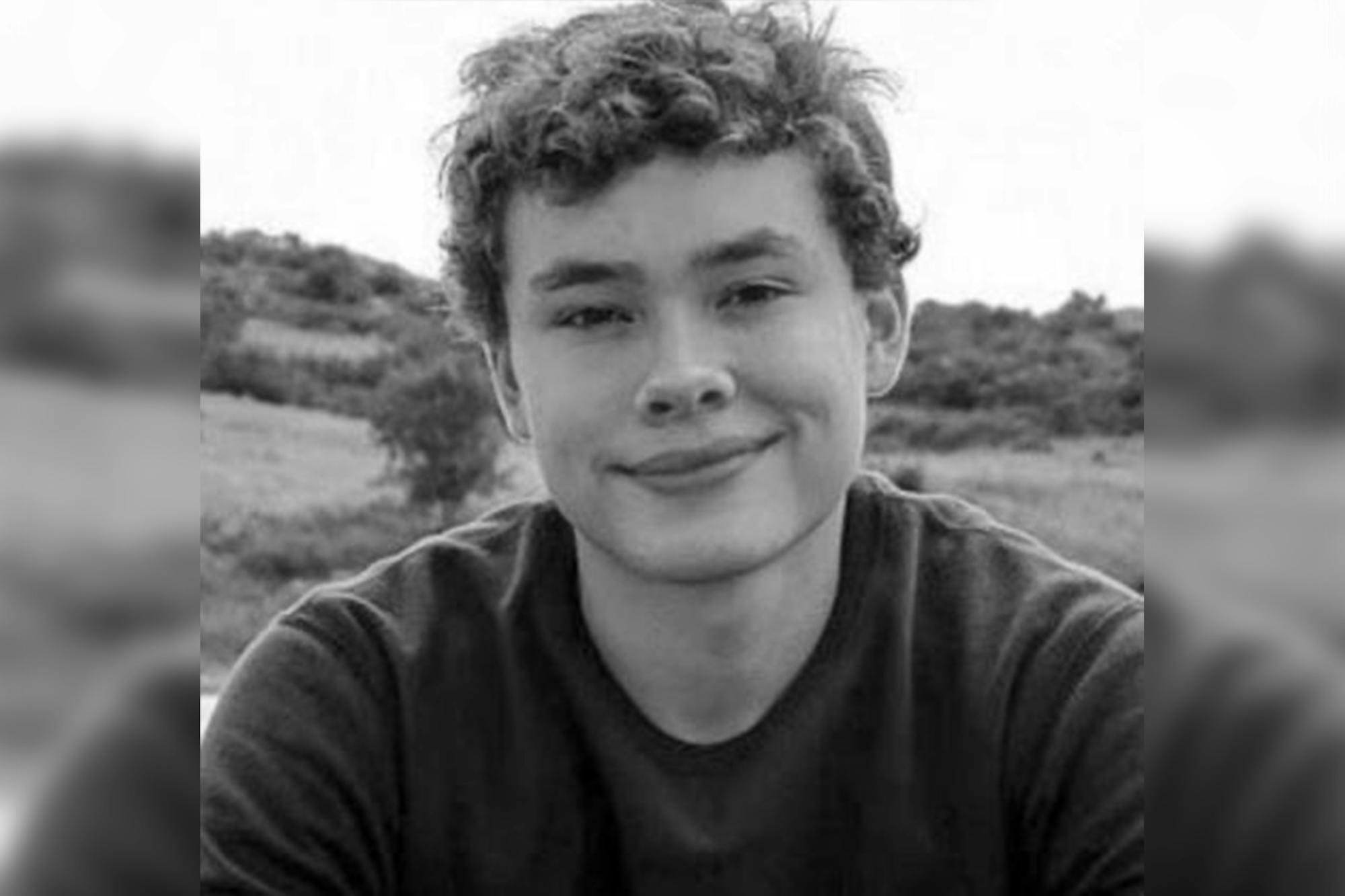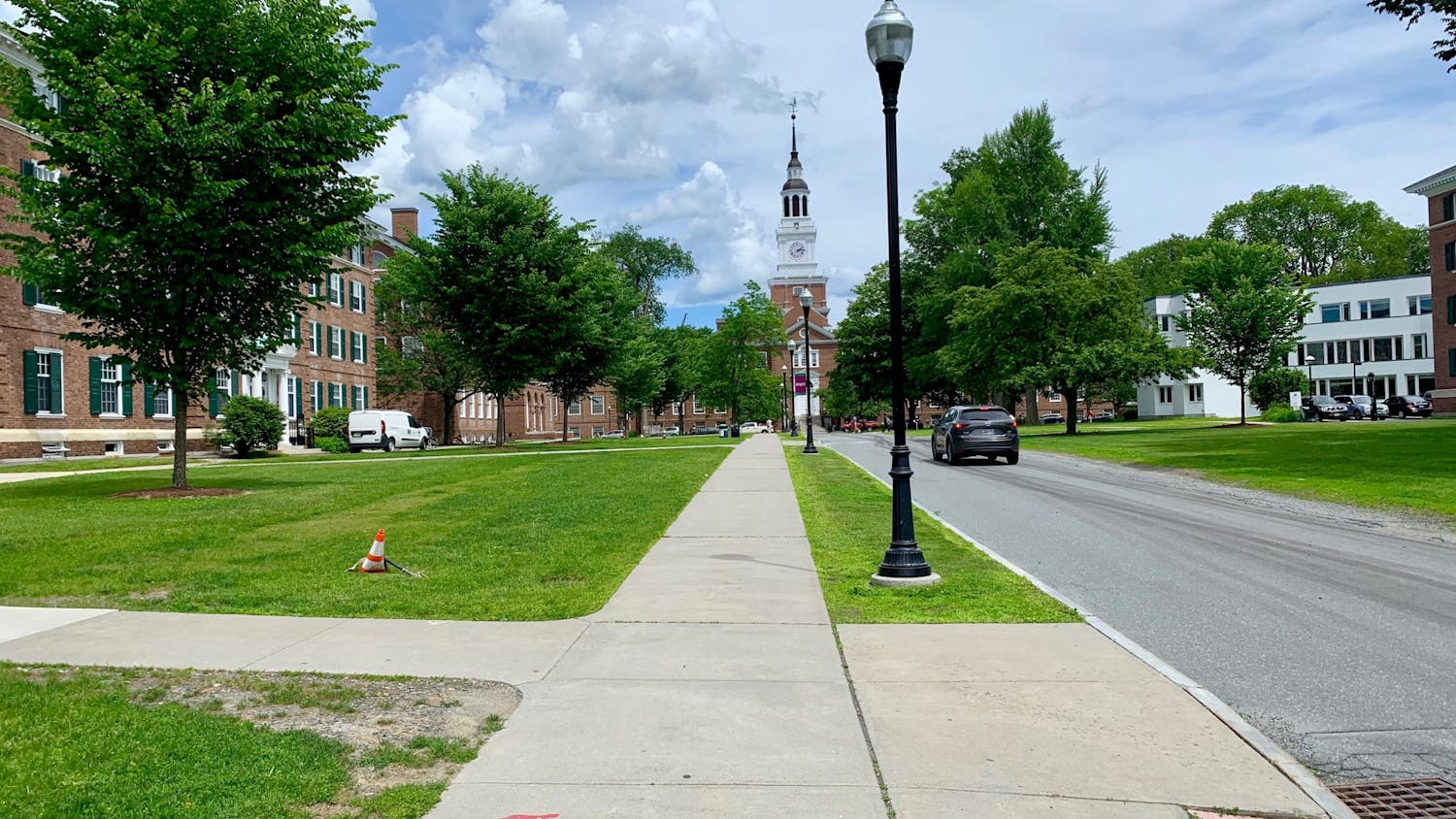Those who knew Beau DuBray ’24 recall him as a kind friend, thoughtful classmate and lover of nature.
“Beau was a leader and listened closely to what others had to say,” said Jonathan Cartwright ’24, one of DuBray’s friends and classmates. “Everywhere he went, he held a philosophy of caring for everything around him.”
DuBray, a freshman from South Dakota, died by suicide in Hanover on Nov. 19 at the age of 18. He is survived by his parents, Fred DuBray and Michelle Fredericks DuBray, his sister, Elsie DuBray, and his grandparents, Thomas and Judy Fredericks.
A member of the Cheyenne River Sioux Tribe and of the Mandan, Hidatsa and Arikara Nation on his mother’s side, Beau DuBray was raised on his family ranch near Blackfoot, South Dakota. Elsie DuBray said her brother was particularly close with his family, and she and him were “each other's best friend” growing up.
Earlier this year, DuBray graduated with honors from Timber Lake School in Timber Lake, South Dakota. Elsie DuBray noted that he was a particularly strong writer, and he made an impact on his school’s community as a member of the band and National Honor Society. He excelled in athletics, competing on the varsity basketball, cross country and track and field teams and placing in the state mile run competition multiple times. He was also named a High School Cross Country Academic All-State Athlete his senior year.
“We have a ridiculous number of medals at our house commemorating his athletic accomplishments,” Elsie DuBray said.
Timber Lake School cross country coach Donna Aberle said that DuBray was “always supportive of his teammates,” including younger runners that upperclassmen would often try to avoid. She added that he enjoyed the competitiveness of the races and always tried to push himself.
“Beau never wanted to let anyone down, so he always gave his full effort,” Aberle said. “He also had a quiet way about himself that spoke loudly of his humble character.”
Apart from his passion for athletics, DuBray was both an avid reader of Native literature and an ardent fan of the Batman movies. His sister recalled that for each of the last 10 Halloweens, DuBray dressed up as the character.
His interest in Native cultures was one of the reasons DuBray chose to come to Dartmouth, according to his sister. She noted that he picked the College because of its robust Native American program, in addition to its numerous outdoor opportunities and small community. Kieran Norton ’24, a friend of DuBray’s, added that DuBray appreciated the woods around campus — a change of scenery from the grasslands of South Dakota.
At Dartmouth, DuBray planned to pursue his interests in philosophy and Native American studies. He had hoped after graduation to return to his community and continue raising buffalo.
“Beau was very adamant about how [modern agriculture practices] remove people from connection to their land,” Elsie DuBray said. “He always sought to maintain connections to the buffalo and our land, like many do in our culture.”
Beau DuBray’s interest in buffalo led him to study the differences in the protein collagen between buffalo meat and beef. For his research efforts, he won the Yale Science & Engineering Association, Inc. award for most outstanding 11th grade project in physics, engineering or chemistry at the 2019 High Plains Regional Science Fair.
DuBray’s pride in his culture could also be seen in his commitment to community service. At home, he was involved in the Cheyenne River Youth Project, which offers youth programs and family services for members of the Lakota Nation facing poverty.
“I hope that I’m able to walk a few steps forward for my people, and if people recognize that I’d be honored, but ultimately I hope that I’m able to gain some new perspectives on the world so I can give back to my community,” DuBray wrote in a note at home before leaving for Dartmouth.
DuBray cherished nature and his family’s connection to the land — a passion that many of his friends and classmates admired.
Norton recalled DuBray’s interest in helping his family raise buffalo sustainably, noting that he often told stories about how buffalo at his home could “hurdle fences” and expressed how much he valued seeing a buffalo grow from a calf to maturity.
Both at home and at Dartmouth, DuBray enjoyed engaging with the outdoors.
“Beau loved going on long walks in the rain to immerse himself in nature,” Ulgen Yildirim ’24, one of DuBray’s floormates, said. “He also took immense pleasure in giving back to his community through the Cheyenne River Youth Project, and he had always talked about giving back to his community more in the future.”
Yildirim added that even though she only knew DuBray for 10 weeks, she cherished bonding with him over lunches and late night walks together. She mentioned that he enjoyed carefully listening to and thinking about music, particularly the songs from one of his favorite movies, “Her.”
Although he spent only one term at Dartmouth, DuBray made meaningful connections with many of his classmates and professors. Nancy Crumbine, his professor for WRIT 5, “Thinking about Education,” said he was always invested in discussions with his classmates.
“Beau always brought new and insightful perspectives into our class discussions,” Crumbine wrote in an email. “He particularly liked one of our readings from Robin Wall Kimmerer’s ‘Braiding Sweetgrass,’ and he helped us to understand some of its meaning.”
His classmates agreed. Norton, who was also in DuBray’s writing class, said that he always had a “grounded” and “deliberate” presence in class discussions.
“Everything he said was meaningful,” Norton said. “He really opened my eyes to new perspectives on the circle of life and how language can convey deeper meaning.”
Cartwright said DuBray’s thoughtfulness extended outside of the classroom, noting that he was “always intentional” in everything he did or said. He recalled bonding with DuBray over an “adventurous” trip to King Arthur Flour in Norwich, Vermont and their shared love of nature.
“We laughed that day about how far we would go to just get some pastries, but I later realized just how thoughtful and caring he was,” Cartwright said. “Whenever I talked with him, I found myself wanting to emulate his kindness and care for others.”
A private burial was held at the DuBray family ranch on Nov. 22, and a celebration of life is tentatively planned for summer 2021. Crumbine said that her WRIT 5 class is planning to hold a memorial over Zoom, and if COVID-19 conditions allow for it, they will gather for a bonfire at her farm during spring term.
College spokesperson Diana Lawrence wrote in an email statement that College staff have been in touch with DuBray’s family to provide support, and campus staff are available to offer counseling, personal and academic support to students on an ongoing basis.
The DuBray family has established the Beau DuBray Memorial Fund for Suicide Prevention. Cash or check donations can be mailed to the DuBray family at 14551 BIA 808, Mobridge, South Dakota, 57601.




